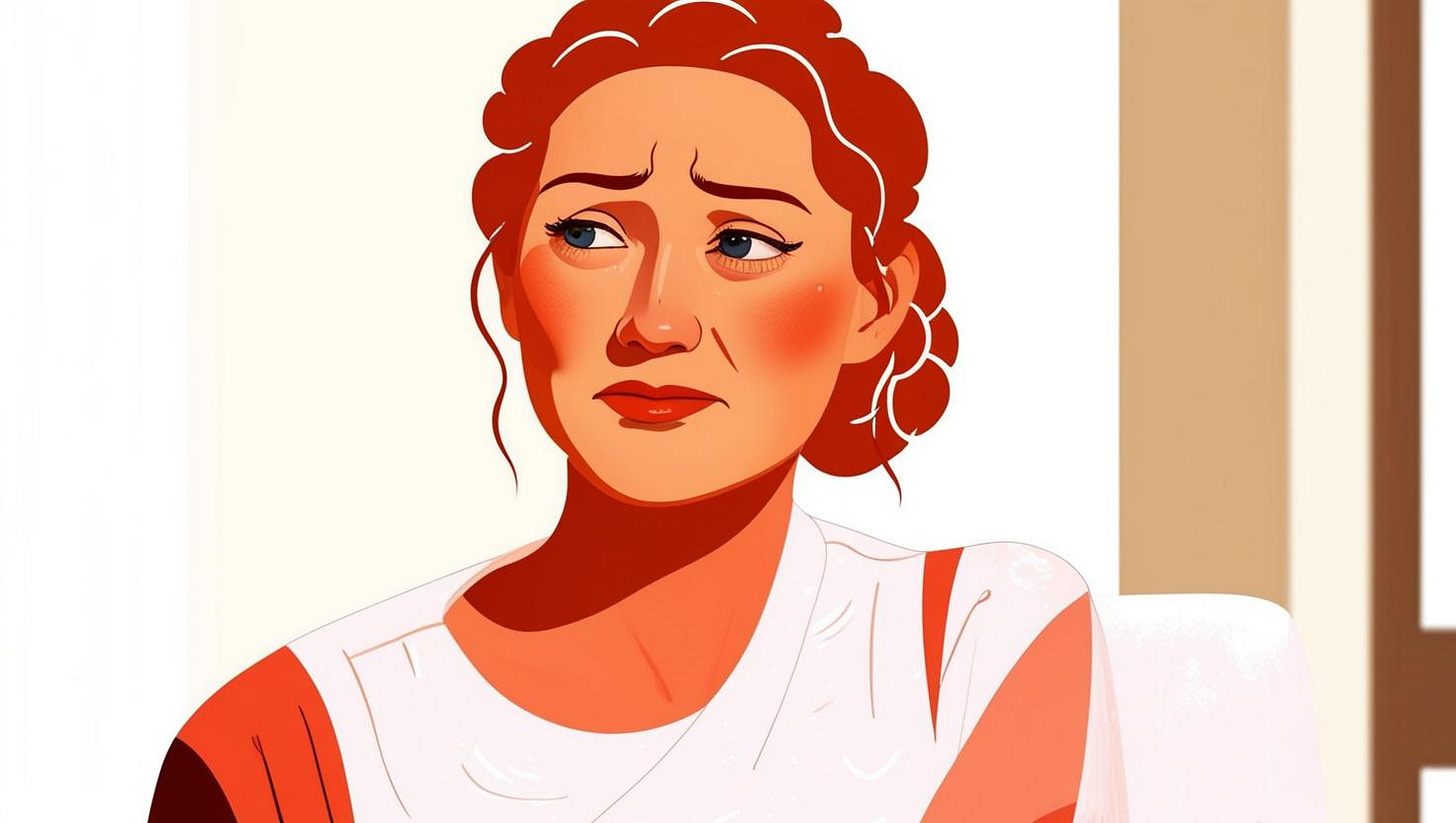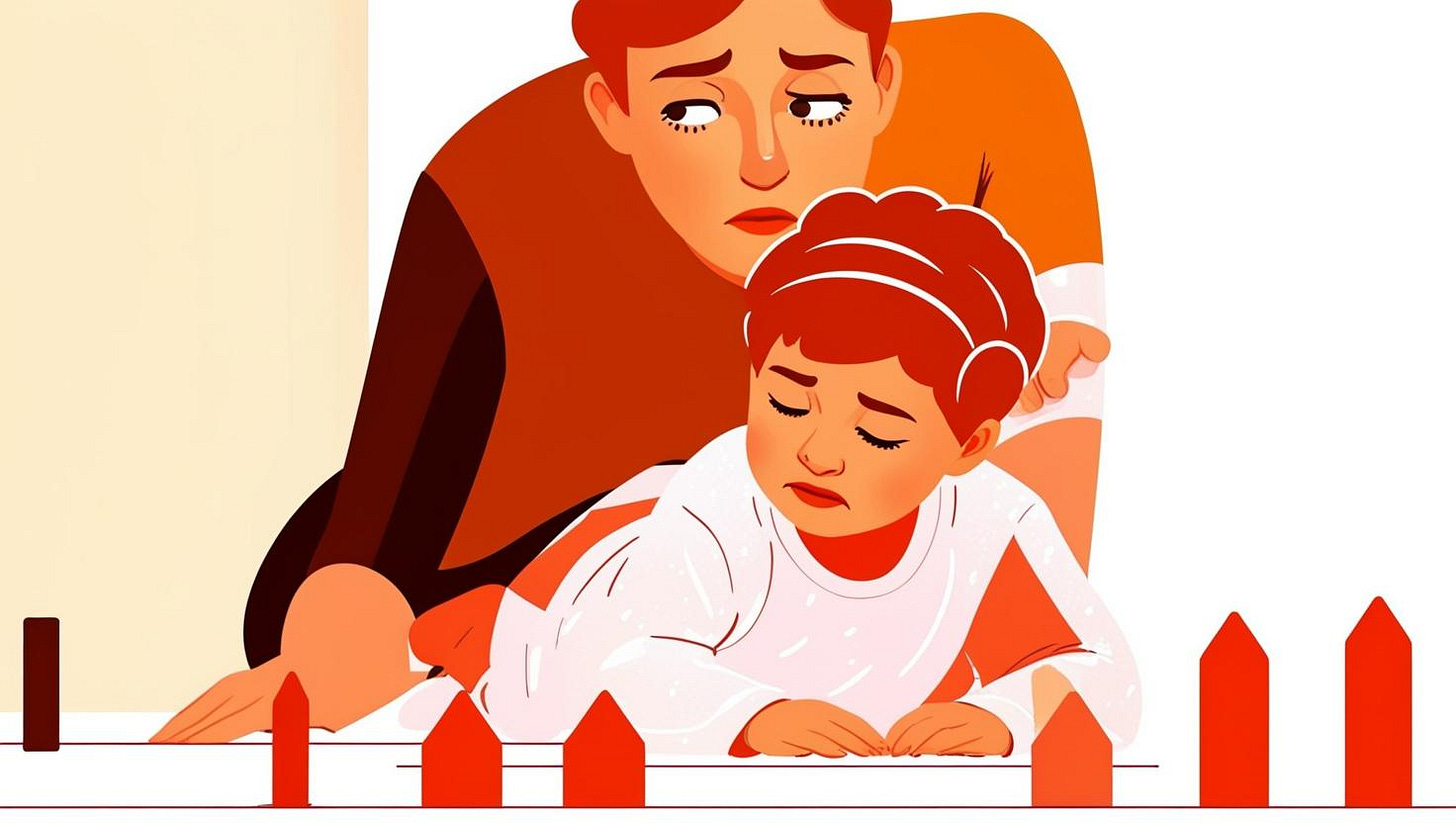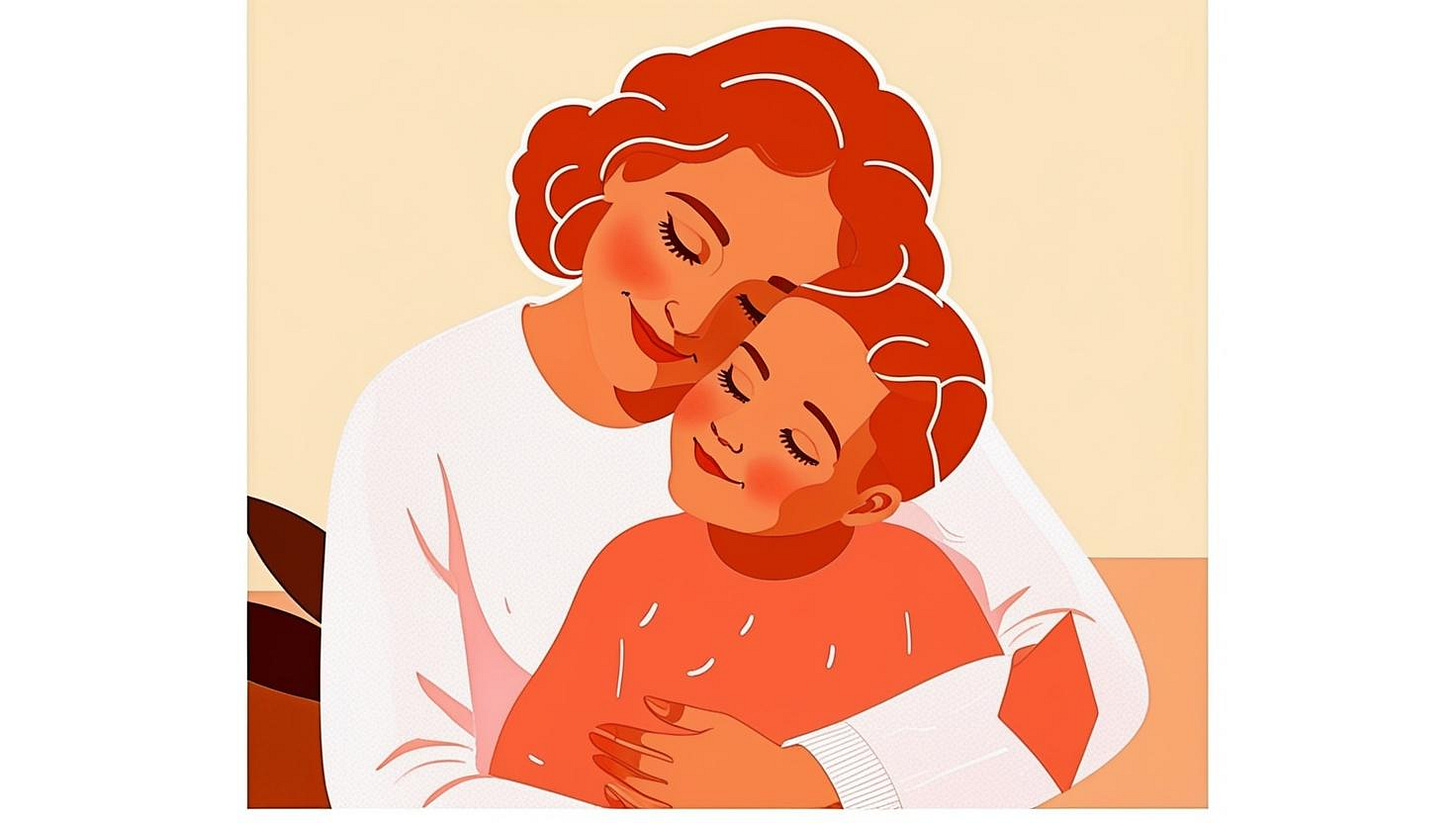The Therapist-Parent Paradox: When Expertise Becomes a Burden
Are you an anxious therapist parent?
The Gift and Burden of Knowing Too Much
As a therapist-parent, your knowledge of child psychology, trauma, and emotional development is both a gift and a burden.
On one hand, you have deep insight into the workings of the human mind. You understand attachment, emotional regulation, and resilience. You help countless families navigate pain, loss, and healing.
But at home? That same knowledge can feel suffocating.
Instead of feeling more confident, you may find yourself questioning every decision, overanalyzing every behavior, and carrying the heavy weight of seeing all the possible risks and outcomes.
Unlike other professions, where work stays at the office, your work follows you home—not just in the form of thoughts but in the way it shapes how you see your own children. And the stakes feel impossibly high.
The insights that make you an incredible therapist can make parenting feel complex, exhausting, and even paralyzing.
The Weight of Knowing Too Much: When Awareness Feels Like a Trap
Hyper-Awareness of Developmental Milestones
Most parents experience their child’s development as an unfolding story, trusting that growth happens in its own time. But for you, it’s nearly impossible to just observe without analyzing.
"My teenager snapped at me and shut down when I asked about their day—are they just having a normal mood swing, or is this a sign of deeper emotional distress that I need to address?"
"My child avoids eye contact when talking to new people—is this a quirk, or an early sign of anxiety?"
"That’s the third meltdown this week. Is this just normal dysregulation, or is something deeper going on?"
What other parents might dismiss as “a phase” feels pregnant with meaning—a potential predictor of struggles yet to come.
➡️ The Paradox: Instead of providing peace of mind, your expertise often leads to more anxiety, self-doubt, and a constant fear of missing something important when it comes to your own child.
Pattern Recognition Overload
If you’ve worked with children and teens, years of clinical experience have trained you to see patterns—to catch problems early, recognize red flags, and notice what others might overlook.
At home, though, it’s hard to turn that skill off.
Your child’s shyness isn’t just shyness—it sparks thoughts of social anxiety disorder.
Their preference for structure isn’t just a personality trait—it raises concerns about perfectionism or obsessive tendencies.
A moment of emotional shutdown after school isn’t just tiredness—it triggers worries about trauma, bullying, or depression.
The very skill that makes you an effective therapist can make parenting feel like a never-ending effort to anticipate and prevent potential crises—rather than simply experiencing your child as they are.
➡️ The Paradox: Instead of trusting that your child is simply growing, you may feel the urge to intervene, analyze, and prevent harm—even when nothing is actually wrong.
The Emotional Weight of Knowing What Can Go Wrong
You’ve seen what happens when kids don’t get the support they need. You’ve helped adults untangle childhood wounds. You know, intimately, how early experiences can shape a person’s emotional health.
And when you’ve spent years sitting with trauma, it’s hard not to wonder:
“What if I get it wrong?”
“What if my child struggles the way my clients have?”
“What if I don’t catch something in time?”
➡️ The Paradox: The deeper your understanding of trauma, the harder it becomes to trust in your child’s resilience.
The Self-Awareness Trap
Recursive Worry Loops
As a therapist-parent, you don’t just worry about your child’s emotions—you worry about how your emotions impact them.
"I’m stressed about their social skills… but now I’m stressed that my stress is making them stressed."
"If they see me anxious, am I modeling anxiety? But if I suppress it, am I teaching them to bottle things up?"
"Am I making them emotionally resilient, or am I overanalyzing them into self-doubt?"
➡️ The Paradox: The desire to raise emotionally healthy kids can unintentionally pass down your own anxiety.
The Freeze of Overthinking
A simple parenting moment—comforting a crying child, setting a boundary, handling a tantrum—becomes a psychological case study in real time:
"Am I being too strict? Too lenient?"
"Should I validate first, or go straight to problem-solving?"
"Am I modeling co-regulation, or just controlling the situation?"
Instead of responding instinctively, you may feel paralyzed by the weight of getting it right.
➡️ The Paradox: The instinct to reflect and improve can make parenting feel unnatural—like walking on eggshells in your own home.
The Personal-Professional Boundary Challenge: When Therapy Follows You Home
The Fear of "Therapist’s Child Syndrome"
You worry that your child will grow up feeling:
Overanalyzed—every feeling scrutinized.
Pressured—expected to name and process emotions at an advanced level.
Trapped in self-awareness—reflecting instead of simply feeling and being.
You don’t want your kids to feel like walking case studies—but turning off the part of your brain that’s trained to analyze is easier said than done.
➡️ The Paradox: The effort to raise emotionally intelligent kids can backfire, making them feel emotionally performative rather than genuinely expressive.
If This Feels Like You, Here’s What Might Help
If you find yourself overanalyzing, second-guessing, or carrying the weight of “knowing too much,” you’re not alone. Parenting with a therapist’s brain can feel overwhelming, but you don’t have to navigate it perfectly.
🌱 Trust That Your Child Is More Resilient Than You Fear
Every parenting decision does not determine your child’s future. Resilience isn’t built in a single moment—it grows over time, through love, consistency, and repair.
🎭 Release the Pressure to Get It Right Every Time
Your child doesn’t need a flawless parent—they need a present, engaged, and warm one. There’s no single “correct” response, only an evolving relationship built on connection.
🏡 Create Mental Boundaries Between Therapist Mode and Parent Mode
Not every behavior needs analysis. Not every struggle needs intervention. Try a transition ritual before stepping into family time: take a deep breath, listen to music, or imagine physically removing your “therapist hat.”
🤗 Lean Into Connection Over Correction
Not every challenge requires a solution. Sometimes, a hug, shared laughter, or sitting quietly together is the most powerful response.
❤️ Offer Yourself the Same Compassion You Give Others
You are not failing if parenting feels hard. You are not failing if your child struggles. You are human. And that’s enough.
From Analysis to Connection: The Heart of Parenting
If you feel weighed down by the responsibility of seeing all the possibilities, you’re not alone.
But parenting isn’t about perfect responses—it’s about presence.
🔹 Instead of striving for flawless parenting, aim for present parenting.
🔹 Instead of interpreting, focus on experiencing.
🔹 Instead of overanalyzing, just love.
Your child doesn’t need a therapist.
They just need you. ❤️
💬 Does this resonate with you? How do you step out of analysis mode and into connection? Let’s support each other in this journey. 💙👇
I’m Kristen McClure, MSW, LCSW—a therapist with 30 years of experience, a child and mental health advocate, and a neurodivergent-affirming coach. I run a therapy practice in Charlotte, NC, and have developed a comprehensive, neurodivergent-affirming program for ADHD and AuDHD women.
🔹 Learn more about the Flourish program: here
🔹 Join the waitlist for the next Flourish cohort: here
🔹 Join my free, affirming community for neurodivergent women: here
🔹 If you are a therapist and want to learn about the flourish model, sign up here
I also write four free newsletters on Substack, covering ADHD advocacy, neurodivergent children, and therapist topics.








Ouch Kristen, you've nailed this! And me! I don't know whether to laugh or cry. And then there's when they WANT me to offer an intervention... I often ask them which Anita they want to be talking to - Mum or Therapist? (they're adult kids). And we've all got ADHD. I mainly try to remember to be present and to connect - thanks for this 🙏🏽
This really resonated with me, thank you for writing this.